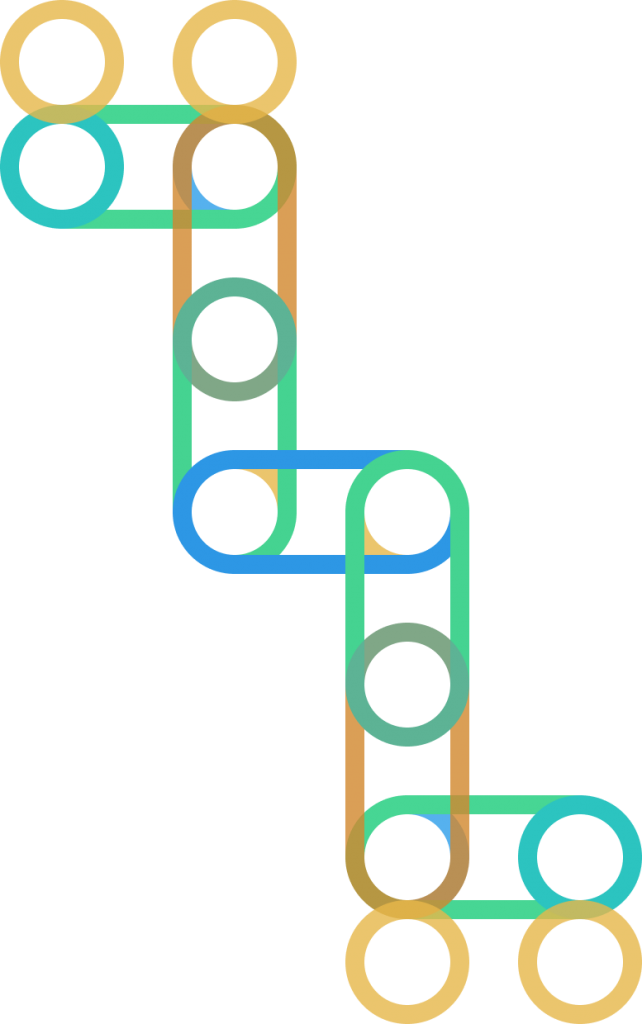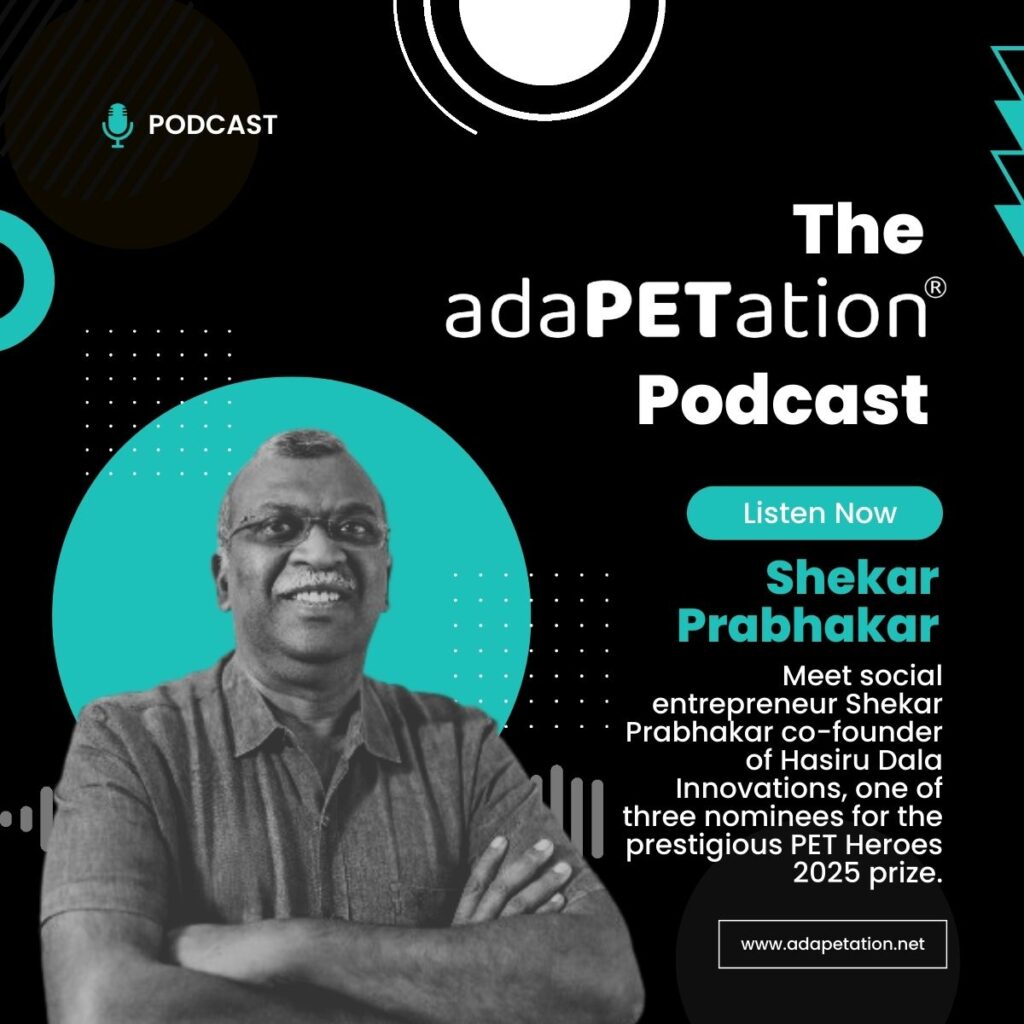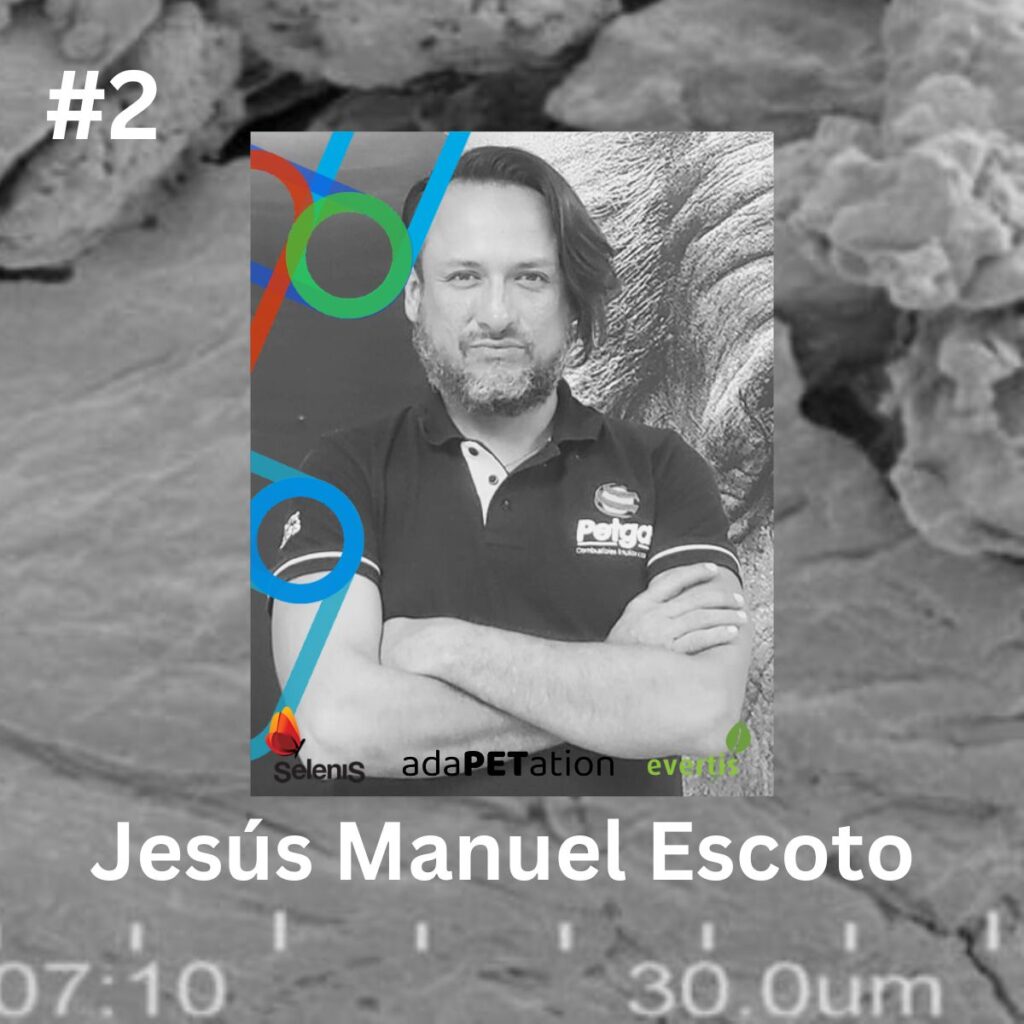
Hasiru Dala Innovations co-founder and PET Heroes 2025 nominee, Shekar Prabhakar's vision creates "quantum change in quality of life," transforming marginalized communities through three entrepreneurial pathways and breaking generational poverty cycles.

In Bangalore, India, a remarkable transformation is taking place within one of society’s most marginalized communities. Waste pickers—individuals who traditionally collected recyclable materials from streets, dumps, and landfills—are becoming entrepreneurs, business owners, and community leaders through a systems change approach pioneered by Hasiru Dala Innovations.
“The true problem that we are trying to address is how do we break the cross-generational nature of waste picking as an occupation and also get them to aspire to changing their lives in a quantum way,” explains Shekar Prabhakar, co-founder and CEO of Hasiru Dala Innovations. “We’re looking at quantum change in quality of life.”
This vision of quantum improvement—not incremental change but transformative leaps in wellbeing—represents a fundamentally different approach to addressing both social inequality and environmental challenges. By reimagining the entire waste management system with waste pickers at its center, Hasiru Dala has created pathways for dramatic life improvements that ripple through families and communities.
The tipping point: from observer to entrepreneur
Prabhakar’s journey into waste management wasn’t planned. As a trustee of Hasiru Dala’s non-profit arm (which focuses on social justice for waste pickers), he witnessed how access to markets could transform lives. But the moment that changed everything came in July 2015.
“Anamma, a waste picker I had known for five years, came to the not-for-profit office along with her three daughters,” Prabhakar recalls. “The youngest daughter walks up to me with a handwritten invitation in English, inviting us to the Groha Pravesham, which is the housewarming ceremony of a new home they had built.”
This family had previously lived in a hut that flooded with every rain, forcing them to spend entire nights sitting on a table until the waters receded. Within five years of receiving entrepreneurial support from Hasiru Dala, Anamma had built her own home, was running a dry waste collection center, had secured a bank loan, and had purchased a truck.
“That was a quantum change in quality of life that we saw,” Prabhakar notes. “At that moment, I knew this was what I wanted to do for the rest of my life.”
This personal transformation—from corporate professional to social entrepreneur—mirrors the transformations Prabhakar now facilitates for waste pickers. Both represent radical departures from expected life trajectories, demonstrating that systems change begins with recognizing the possibility of fundamentally different futures.
Three pathways to entrepreneurship
Hasiru Dala Innovations has developed multiple business models that create different entrepreneurial pathways for waste pickers, recognizing the diversity of aspirations and circumstances within the community.
1. Waste Collection Entrepreneurs
The first pathway involves identifying waste pickers who can become entrepreneurs through Hasiru Dala’s bulk waste collection services. These individuals purchase trucks (with financing arranged by Hasiru Dala) and provide waste collection services to large waste generators like apartment complexes, corporate campuses, hotels, and restaurants.
“We identify a waste picker who can become an entrepreneur, buy him a truck for which he pays over four years and therefore creates an asset for himself,” Prabhakar explains. “He does the primary collection of all three streams of waste. He gives the company the wet waste and the rejects, and he gets to keep the recyclables in the inorganic dry waste, which he sorts into about 30 to 35 categories and sells into the recycling supply chain.”
This model creates two income streams: revenue from selling recyclables and a monthly fixed income for collecting all waste streams. The transformation can be remarkable, as exemplified by Lothfar, one of their early entrepreneurs:
“Lothfar, who started with us 10 years ago, today has moved from a tarpaulin shack to a proper house. He owns four trucks. He employs 30 waste pickers. He’s been filing his income tax returns for the last six years. He’s been paying his goods and service tax for the last two years. But what he’s most thrilled about is banks call him to give him a loan.”
The pride in financial inclusion—being recognized by formal institutions that previously excluded waste pickers—represents an often overlooked aspect of entrepreneurship: recognition as a legitimate business person worthy of financial services.
2. Event Waste Management
The second pathway creates entrepreneurial opportunities through event waste management. Hasiru Dala provides waste management services for approximately 350 events annually, ranging from private weddings to major sporting events, music festivals, and corporate conferences.
This model offers flexibility for waste pickers who may prefer supplemental income rather than full-time entrepreneurship. “We hire the waste picker for the day, or he gets hired at market daily wages and comes only to the event if she needs that additional income to our waste picking income,” Prabhakar explains.
Beyond income, this model offers social inclusion: waste pickers “get to meet people and go to occasions that otherwise she wouldn’t go to.” This exposure to different social contexts and professional environments contributes to changing perceptions—both how waste pickers see themselves and how society views them.
3. Plastic Circularity Entrepreneurs
The third pathway focuses on plastic recycling and represents Hasiru Dala’s growth engine, constituting approximately 50% of their business. The organization aggregates plastic waste (currently focusing on PET and LDPE polymers) and is establishing a large plastics recovery facility to handle all polymer types.
What distinguishes their approach is Fair Trade verification. “We happen to be the world’s only multi-stream waste management company, like organic wet waste rejects, as well as inorganic dry, multi-stream waste management company that is fair trade guaranteed by the World Fair Trade Organization,” Prabhakar notes.
This certification enables partnerships with global brands like H&M (which uses recycled PET “social buttons” on garments manufactured in India) and Unilever (whose Sunsilk Oilblends bottles contain 50% recycled plastic with a Fair Trade guaranteed origin label).
These partnerships create premium prices that flow back to waste pickers through fair trade practices, creating sustainable entrepreneurial opportunities throughout the plastic supply chain.
Measuring quantum change
Traditional impact metrics often fail to capture the transformative nature of entrepreneurship. While Hasiru Dala conducts formal evaluations (showing a 166% income increase among workers employed by their waste picker entrepreneurs), Prabhakar focuses on what he calls “surrogate parameters” that indicate quantum life improvements:
“Do they own a better phone? Do they own their own two-wheeler? Have they bought a fridge at home? Have they moved from wood-burning stove to an LPG stove? Have they moved from a shack to a proper house? These are surrogate parameters that we tend to look at. Are their kids staying in school till at least 10th grade, which they have to take an oath to do if they’re going to work with us?”
These indicators reflect genuine transformation—not just increased income but fundamental changes in living conditions, consumption patterns, and future prospects. The entrepreneurial opportunities created by Hasiru Dala enable waste pickers to reimagine their relationship with formal systems (financial, educational, housing) that previously excluded them.
Overcoming systemic barriers
The path from waste picker to entrepreneur isn’t smooth. Structural barriers in both the waste management system and broader society create challenges that require systems-level responses.
Resistance from entrenched interests
“Whenever you try to change status quo, right, especially status quo with vested interests, they tend to react violently,” Prabhakar notes. “We have had instances where our trucks have been hijacked, our co-founder has been beaten up, Narni has been threatened with death, our waste pickers have been thrown into jail.”
This resistance comes from existing waste management contractors, often with political connections, who perceive Hasiru Dala’s model as threatening their control. Rather than retreating, the organization built alliances with courts, police, political leaders, and most importantly, citizenry.
“One of the things that Narni did was to have very strong relationships with the middle class in Bangalore because we felt that their support would help us get the plight of waste pickers up to the government,” Prabhakar explains. These cross-class alliances created protective networks that enabled waste pickers to establish entrepreneurial footholds despite opposition.
Transforming professional mindsets
Beyond external resistance, waste pickers themselves face challenges in transitioning to entrepreneurship. “Waste pickers have been masters of their own time, right? And they had no employer-employee relationship and they were not answerable to anyone,” Prabhakar explains.
The shift from independent waste picking to service provision requires understanding concepts like service level agreements, punctuality, and the consequences of missed collections. “Professionalizing the waste speakers who have till then been very independent entrepreneurs was a challenge. Getting them to understand, realize what are the domino effects of not doing something was a challenge.”
Hasiru Dala addressed these challenges through tailored onboarding, training, and monitoring processes that helped waste pickers adapt to entrepreneurial responsibilities while maintaining their autonomy.
Changing customer expectations
Perhaps the most pervasive barrier is public reluctance to pay for waste management services. “For decades, no one has been charged for managing their waste. Everyone thought it was someone else’s business, especially the government’s business, to manage the waste that they generate,” Prabhakar explains.
Convincing clients to pay for services that they previously received for “free” (though actually subsidized through taxes and environmental degradation) remains challenging. Hasiru Dala overcomes this through reliability, transparency, and environmental assurance: “We never miss a collection. We do it 30 days in a month…90% of their waste would be diverted away from landfills.”
This reliable service builds trust that sustains long-term client relationships, with some clients continuing from 2016 to the present.
Trust as the foundation of systems change
Throughout Hasiru Dala’s work, one principle emerges as fundamental to enabling entrepreneurial transformation: trust.
“It is as simple as keeping your word,” Prabhakar states. “If you said you would do something, do it. Or if you’re not going to be able to do it, give sufficient notice that you’re not going to be able to do it or that there’s going to be a delay in doing it.”
This principle applies throughout the value chain—from waste pickers to collection entrepreneurs to corporate clients to government agencies. By creating reliable expectations and following through consistently, Hasiru Dala establishes an environment where entrepreneurial risk-taking becomes possible.
“It’s difficult to build trust, it’s very easy to lose it, so just be consistent and we will then succeed,” Prabhakar explains. This consistency enables waste pickers to make the leap from day-to-day survival to long-term investment and growth.
From the first mile to the last: a vision for regenerative entrepreneurship
As Hasiru Dala continues expanding (now managing nearly 60 tons of waste daily across 400 bulk generators in Bangalore), Prabhakar envisions an even more transformative future:
“Right now, where we are, we are the first mile of the circular economy. But actually, we should be the last mile where the brand or a producer actually designs out waste from their products, just like they design in features, functionalities of use, convenience of their products or services.”
In this vision, waste picker entrepreneurs would become reverse logistics providers—collecting specific products for remanufacturing, refurbishment, or recycling. “Going forward, we want to be a waste picker owned reverse logistics company. And that would be truly regenerative, in my opinion.”
This vision represents the ultimate systems change: transforming waste pickers from invisible collectors of society’s discards to essential partners in a circular economy that designs out waste entirely.
Lessons for systems change practitioners
Hasiru Dala’s approach offers valuable insights for systems change practitioners across sectors:
- Start with the most marginalized: By centering waste pickers—among the most socially and economically excluded groups—Hasiru Dala demonstrates how addressing the needs of the most vulnerable creates benefits throughout the system.
- Create multiple pathways: Different entrepreneurs require different support models. By offering various entry points (full ownership, supplemental income, fair trade premium prices), Hasiru Dala maximizes inclusion.
- Build cross-sector alliances: Success depends on mobilizing support from diverse stakeholders—middle-class residents, government officials, global brands, and waste pickers themselves.
- Demonstrate reliability: Consistency builds trust that enables risk-taking and long-term investment. By never missing collections and always delivering on promises, Hasiru Dala creates an environment where entrepreneurship can flourish.
- Measure transformative change: Moving beyond income metrics to holistic quality-of-life indicators captures the true impact of entrepreneurial opportunities.
For designers, innovators, and impact investors seeking to create systems change, Hasiru Dala offers a powerful model of how entrepreneurship can transform lives while addressing environmental challenges. By removing barriers between waste pickers and markets, between formal and informal economies, and between environmental and social impact, they demonstrate the potential for truly regenerative entrepreneurship.
As Prabhakar reflects on waste pickers who have become entrepreneurs: “These stories are being told by them as we create the opportunities… It’s them and their voices. It’s not about us.” This shift in narrative—from beneficiaries to protagonists—may be the most profound transformation of all.
VOTE FOR SHEKAR PRABHAKAR
Who’s your PET Hero?
The future of plastics is being redefined, and you can be a part of it. Listen to the full podcast with Shekar Prabhakar to delve deep into how responsible brands and PET plastic is driving ecosystem restoration around the world.
Your support can usher in a new era where plastic, once the problem, becomes an integral part of the solution.
Share it
Useful Links
THE HISTORY OF PLASTIC
Throughout the history of plastic, PET has been crucial in keeping food fresh with lightweight and durable packaging solutions that have helped reduce food waste for almost a century. Learn all about the invention of plastic and the important role it has played feeding people and saving the lives of humans and elephants in the adaPETation® timeline of the history of plastic.





